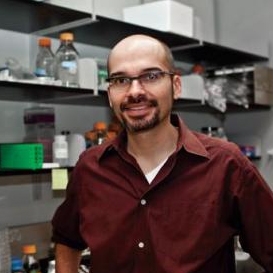
Date:
Location:
Speaker:
Abstract
We now possess the ability to read and write DNA. These tools are not only revolutionizing biotechnology but also the basic life sciences as well. The challenge is that we are still learning the grammar. In other words, we often do not know which genetic perturbations to make in order to alter the behavior of an organism. As a result, synthetic biology still involves much trial and error. Moreover, we are still far from the point where we can engineer new organisms from scratch – rather, we need to alter the physiology of existing ones. Even then, we still need to understand how these organisms function in an integrated manner. In this talk, I will discuss the application systems biology to synthetic biology as a general strategy for overcoming many of these challenges. I will first discuss our work investigating metabolic regulation in the context of fuel and chemical production. I will then discuss our recent work engineering non-model organisms with unique properties.
Bio
Christopher Rao is a Professor of Chemical & Biomolecular Engineering and Robert W. Schaefer Professorial Scholar at the University of Illinois at Urbana-Champaign and a program leader within the Energy Biosciences Institute. He received his B.S. from Carnegie Mellon University and his Ph.D. from the University of Wisconsin, Madison, both in Chemical Engineering. Prior to beginning his independent career at Illinois in 2005, he was a postdoctoral fellow at the University of California, Berkeley and the Howard Hughes Medical Institute. He received the NSF CAREER Award in 2007, W. David Smith Jr. Graduate Student Paper Award from AIChE in 2007, the High Impact Paper Award from IFAC in 2010, and the Outstanding Young Research Award from the Computing and Systems Technology Division of AIChE in 2012. His research interests are in the areas of systems and synthetic biology, with a specific interest in understanding how cells employ feedback control in decision-making processes.



